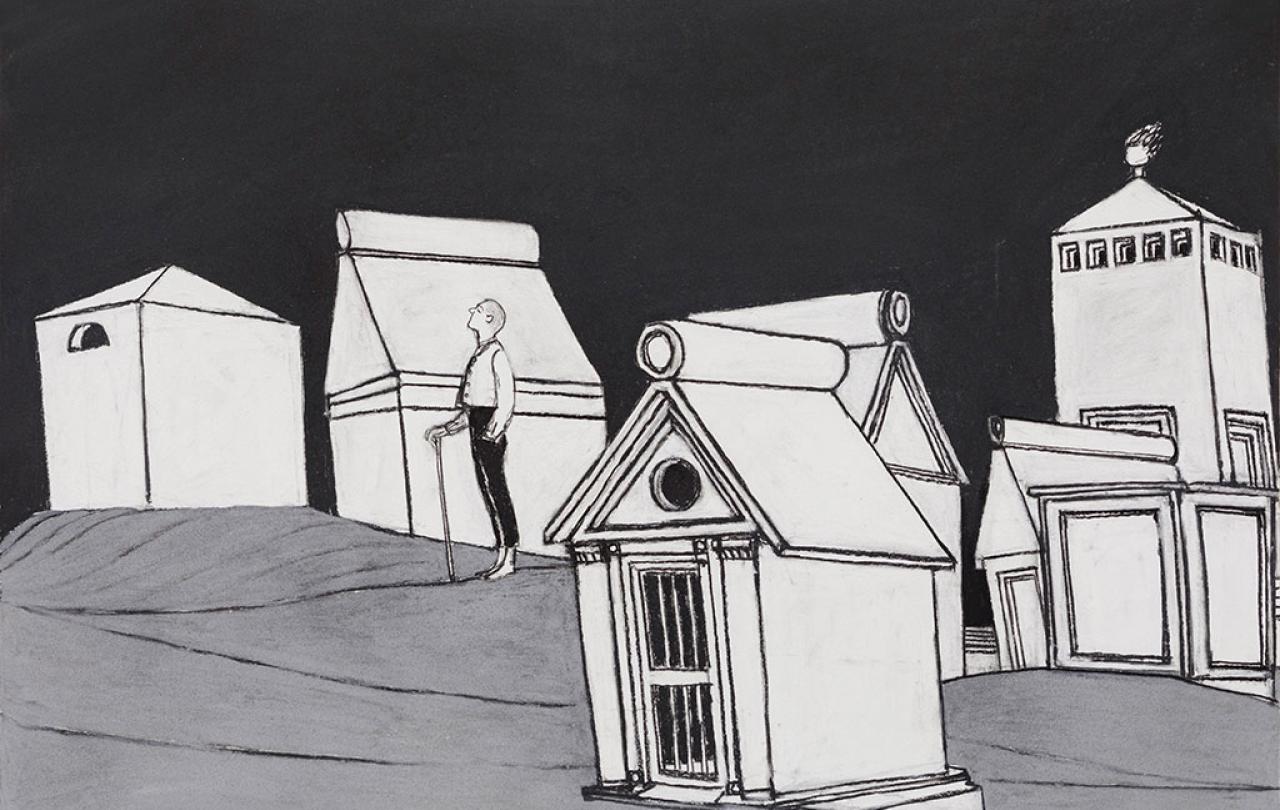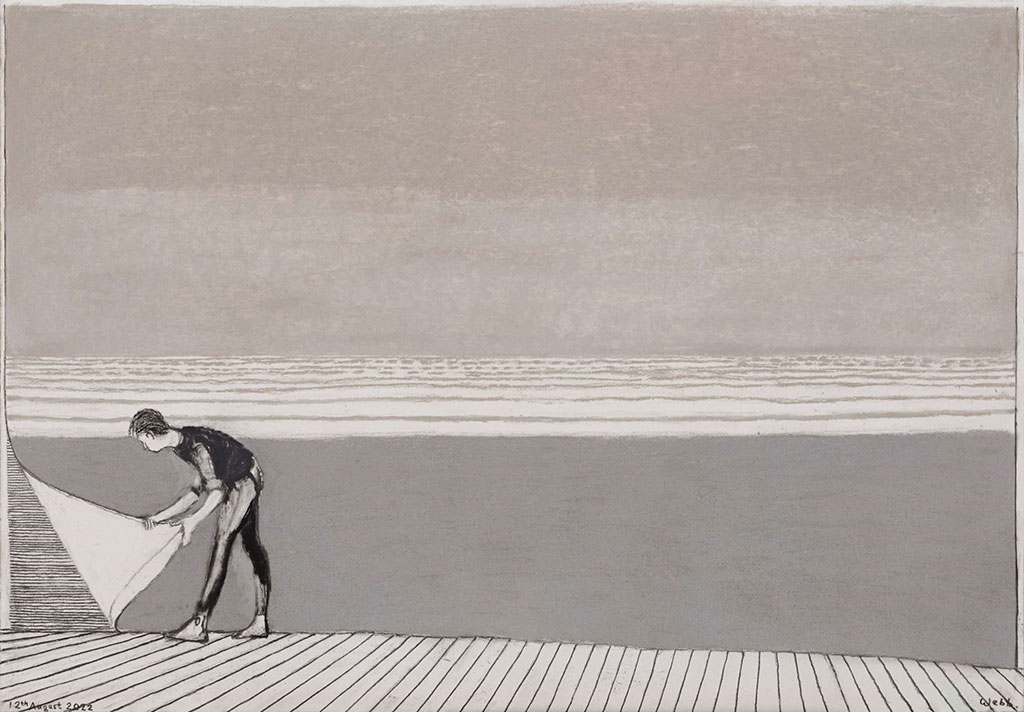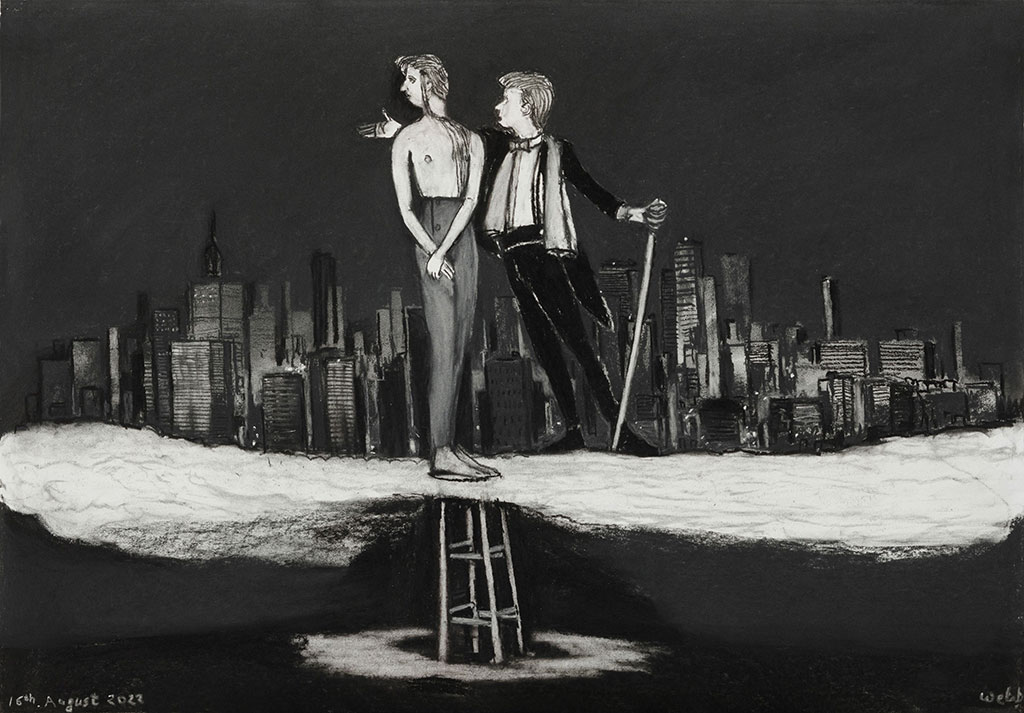
If you thought that my vicar’s emphatic sermon explaining why we should stay away from the likes of Love Island would stop me watching series 1-9 of the UK version, two vintage celeb series and a decent chunk of the Australian spin-off – you would be sorely mistaken.
On the face of it, reality dating shows, packed full of unobtainably attractive people using dubious techniques to secure a partner, don’t seem compatible with a life of devotion to Jesus. But, I’d like to put forward the case – with strong caveats – for us all enjoying the occasional escapism of a dating show.
A brief history
As a tabloid journalist, I’ve pretty much seen it all. My love affair with reality TV started when, as an 11-year-old, I sat inches away from the screen every weeknight just to soak in the excitement of the Big Brother house. The volume was low, which meant my mum couldn’t hear the housemates’ diary room confessions but that often I struggled to as well. I didn’t care, I just wanted to be a part of it. The most eagerly anticipated element to the claustrophobic 1984 spin-off were the love stories, Mel and Randy Andy from series one or Jade Goody and PJ from series three. We were all waiting for a romantic storyline to captivate our attentions.
Dating shows had been around for a while. We all remember the happy hattrick of ITV’s Baywatch, Gladiators and Blind Date on a Saturday night. The nation cosied up on the sofa to watch Cilla and Our Graham introduce a new couple. On the more youthful side, Davina McCall had been dashing around shopping centres and high streets trying to get people on impromptu dates on Streetmate since 1998. But with little follow up and no opportunity to immerse myself into the narrative of the love story, these held less interest for me.
That all changed with the introduction of Love Island. It started in 2005 as a show most won’t remember. In its original iteration, the tropical set hosted celebrities with a £100,000 prize for the famous pair who survived several public votes. The fame levels were modest at best, with a smattering of 90s popstar and soap actors and the mediocre-level entertainment was enjoyed for two seasons before ITV, its broadcast channel, axed the show due to disappointing ratings. I, of course, watched and enjoyed it, although 18 years on, I can only remember fan favourite Paul “Danger” Danan kicking up a fuss about something trivial.
The famed programme made a dramatic reappearance in 2015 but in the ten years between, other production companies had caught on. Novelty shows like Farmer Wants A Wife, Beauty and the Geek and Take Me Out cropped up. While others feigned interest in authentic connection like Undateables and First Dates. But still, nothing followed the relationship journey from first sight to break-up and all the messiness in between.
In order to get the press coverage required for the relaunch, the producers included one contestant who was, at best, fame-adjacent.
When Love Island came back, they had downgraded to ‘regular members of the public’, albeit the aesthetically elite, and slashed the prize fund to £50,000. In order to get the press coverage required for the relaunch, the producers included one contestant who was, at best, fame-adjacent. In the first series that was Lauren Richardson, a woman who had been at the centre of a cheating storm between One Direction’s Zayn Malik and Little Mix’s Perrie Edwards. For series two, it was Miss Great Britain, they then moved on to little known popstars, landing more recently with family members of celebrities like Tyson Fury’s brother Tommy, Michael Owen’s daughter Gemma and Danny Dyer’s daughter, also called Danni.
The first series gained some traction. There was coupling-up, heartbreak, a lot of sex and even a marriage proposal. But the show really blew up after Miss Great Britain, Zara Holland, was stripped of her pageant crown for performing a sex act on a fellow islander in series two. International media swarmed around the controversial incident and Zara was chastised for the night of passion. Alex Bowden, the male participant, was celebrated for his seduction, despite confessing to having no feelings for the model. This was when my perception of reality dating shows changed. No longer was I consuming them as an entry-level escape from reality, but because they had become influential. I realised Love Island wasn’t following the zeitgeist but setting it. Zara’s public dethroning became a feminist issue that was publicised in media outlets all over the world. From then on, ratings went through the roof and stayed at an eaves-busting level for years after.
The lexicon of love
It’s fair to say my 11-year-old rationale for consuming the easily-digestible reality TV was ill thought through, but into my 20s I knew exactly what I was doing. Love Island began to dictate the trajectory of relationships and the everyday language we use to describe them. Suddenly everyone was adopting ‘islander’ terminology like: “getting pied” (being rejected in a way that the receiver could deem embarrassing), “grafting”, “laying it on thick”, “Factor 50”, “being on job” and “putting in a shift” (all meaning courting the object of your affection), “turning your head” (being involved in some capacity with a person but transferring your attentions to another) and being “muggy” (generally disrespectful).
Another bizarre phenomenon that evolved off the back of the show is the new, previously unstated, stages of dating that I find both baffling and unnecessary. In days gone by, you met someone, you dated and you decided to be boyfriend and girlfriend, engagement and marriage may or may not have followed. These days, it is not that simple.
Its complicated
First you confirm that you’re “getting to know each other”. No longer platonic, this term signifies that you are evaluating your potential mate for compatibility but in a very loose handed and non-comital way. Next you are “seeing each other” this is where you have graduated past getting to know each other and are now dating. Reader, please note you are still not exclusive. The next stage in the marathon that is commitment, is that you say your “head wouldn’t turn” this means that, theoretically you only have eyes for the other person. Again, only the foolish would consider this a commitment. The statement can be retracted under the, not unlikely circumstances, that your head does in fact turn. If you survive this period without whiplash from all the erratic neck movements, you are in the territory of exclusivity. You are no longer “open to getting to know” anyone else and have “put your eggs in one basket”. But don’t, under any circumstances, use the term boyfriend and girlfriend at this juncture for fear of being an over-enthusiastic simpleton who doesn’t understand the social etiquette. You are still in a low commitment and decidedly fragile stage.
It’s often after this that people will say “I love you”, apparently far easier to pronounce than “girlfriend” or “boyfriend”. And finally, when the couple are sufficiently established, one party (often the male in heterosexual couples but not exclusively) will stage an elaborate proposal-style event in order to pop the all-important boyfriend/girlfriend question. Candles, rose petals, treasure hunts and any manner of other paraphernalia have been known to be involved. Exhausted? This 34-year-old wants to curl up in front of an episode of Last of the Summer Wine with a cup of Horlicks just thinking about it.
But am I pleased I understand it? Absolutely. This is how the younger people in our lives are now operating. No longer are people turning to teachers, parents or churches for advice (if they ever did). They’re take tips from bikini-clad hotties on the box. It’s the blind leading the blind.
A few years ago I was in my church and the children and youth pastor was heading out to run a Bible session at a nearby girls’ secondary school. As she left, she told me that they would be talking about Love Island. A few weeks prior, one of the female contestants had lamented the sexual relationship she had had with one of the men before he promptly “turned his head” for a new arrival. She had assumed that their shared physical intimacy was implicit of commitment and he disagreed. The teenage girls had discussed, in depth, how that would have felt under the same circumstances. They debated how to know that you are in an “exclusive” relationship and therefore able to step up your sexual contact.
Having just seen a woman desperately upset at her treatment, they were far more open to hearing about the emotional consequences of rushed intimacy. It was one of the most powerful, teachable moments she’d had with these young women, who were far more primed to learn from the regret of the influencers they admire than the “square” church leader who joined them once a week.
No, really complicated
More recently, two more shows have joined the heady heights of Love Island’s impact levels; Love Is Blind and Married At First Sight. The former is an American Netflix series where individuals are put into pods and can’t see their dates. They have ten days to romance the 15 members of the opposite sex sight unseen. Contestants only progress to the next stage, where they meet and go on holiday together, if they decide to get engaged while still in the pods. In Married At First Sight, which has a UK version but is revered mainly for its explosive Australian series, a couple is matched by an expert panel and they first meet at the altar. In response to the most frequent of all the FAQs around this show; the wedding is not legally binding so couples who choose to stay together will often have a second, legitimate ceremony. Equally the vast numbers of pairs who don’t work out, do not need to file for divorce.
We are all in a position of influence, whether that be at work, online or even just in our own homes. Therefore, surely we have a responsibility to understand the other forces that shape our world. Genuinely, whether a young person watches it or not, Love Island and these other programmes will affect the tone and expectations of their relationships, particularly romantic.
When not to watch
There is a key and very sensible argument for those of all faiths and none to avoid these shows. My vicar’s reasoning was, and still is, completely valid. What we fill our eyes, heads and hearts with is what we become. No one is immune from influence by the things they engage with. Christians are encouraged to let a lot of that stuff be good, Godly things. And to focus on that which builds us up and enhances our relationships with Him and with each other. Realistically, it’s unlikely we’ll find this enhancement through the medium of dating shows. There are a few circumstances under which I think people are best giving dating shows a wide berth.
When it comes to placing the right level of importance onto romantic love, these shows aren’t helpful.
If you are all consumed by the idea of being in a relationship and this longing is affecting your daily life – do yourself a favour and stay away. We mustn’t allow the lie that romantic relationships are the be-all and end-all to soak in. And we’re on dangerous ground when we start to believe intimacy is to be rushed to win popularity and a prizes. When it comes to placing the right level of importance onto romantic love, these shows aren’t helpful. They don’t celebrate the incredible joy and value of being single – if you don’t “couple up”, get engaged in the pods or decide to stay in your first-sight marriage, you’re out. That’s not what, as a Christian, I believe.
Being single is not a stage to “graft” your way out of. You’re not less valuable if you’re not picked to “couple up”. The Bible is really clear that whether for now, or for your life, being single comes with benefits and, in many ways, is preferable to being in a relationship. The key role-models that Christians hold dear as examples in our faith; Paul, John the Baptist and even Jesus himself, were single. Getting into a relationship isn’t “winning” or “levelling up”, it’s exchanging one state with its perks and challenges for another state with its perks and challenges. Being single does not demonstrate inferiority or unattractiveness - and those in relationships are not superior.
Second – if you are struggling with your body image. Be kind to yourself and do your best to avoid the taut and toned bodies on reality shows. The scantily clad contestants prancing about in their swimwear are unlikely to introduce genuine perspective into your thinking. Dating shows do make people feel that their, perfectly normal and healthy, body shape is in need of a crash diet and weightlifting session. You don’t need to be super thin and magazine-cover ready to find love. We all know this, in theory. But there are plenty of people who still feel that they’ll be more successful once they’ve shifted those last few pounds, finished Invisalign or toned up their abs. This is nonsense and these thoughts must be rejected every time they creep in.
Getting on top of intrusive thoughts is something people talk about all the time. But it’s scientifically proven that the more you try to supress a thought, the more you focus on it. Google Wegner's white bear if you want to check the receipts. I use a different framework for stopping unhelpful beliefs from settling in; taking those thoughts captive and make them obedient to Christ. This may sound like an airy-fairy, spiritual message but it’s straightforward and practical. If a thought comes to my mind that I know is damaging, rather than letting it fester or attempting to fight it, I acknowledge it. I pray to God telling Him that I’m handing that thought over and I reject it from my life. It’s as simple as that.
Finally, kindness must be a priority in a way that these shows don’t demonstrate. “Being true to yourself” is all well and good, but it is often used as a blanket excuse for poor behaviour. We see this time and time again on Love Island – when a contestant justifies their wandering eye by saying they “have to do what’s right for them”. Sometimes – you don’t. Sometimes, you have to do what’s most considerate for the people around you. I’m sorry did I say sometimes – I meant all the time. That doesn’t mean staying in a relationship that isn’t right for you, but it means having an open and caring conversation with that person before your “head turns” or you’ve “pulled someone else for a chat”.
Maybe we should all watch reality dating shows from time to time. But when we’re taking our lessons on body-image, self-worth, relationships, and love from these shows, that’s when we’re going wrong. Personally, I prefer the Bible.









